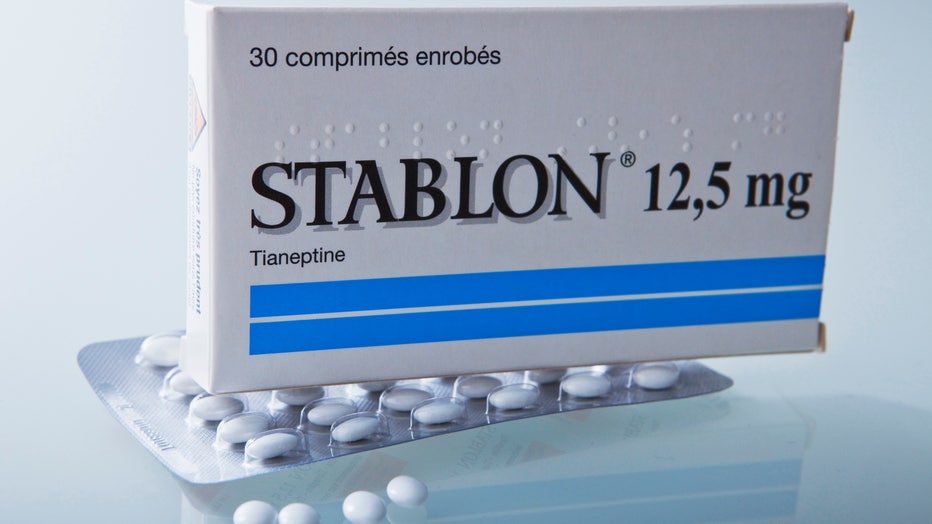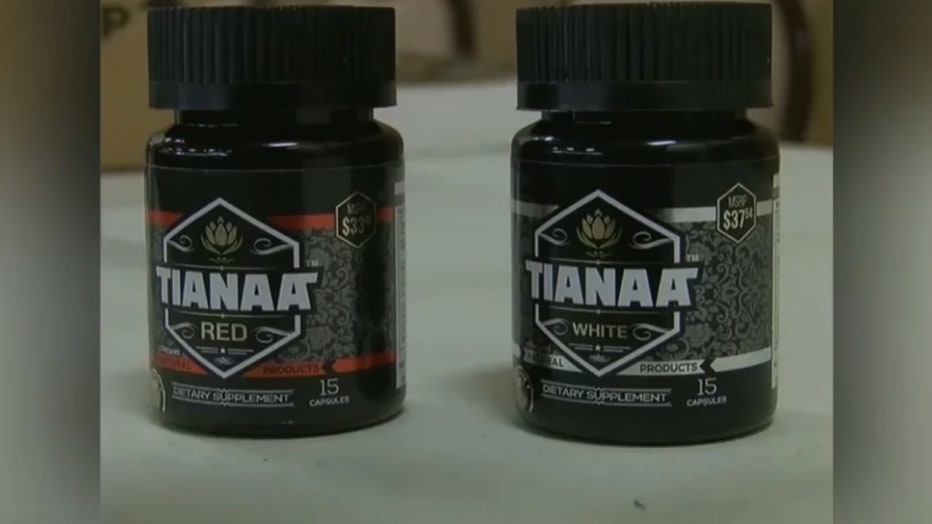What is tianeptine? Lawmakers sound the alarm on 'gas station heroin'

'Jelly Roll' testifies at Senate fentanyl hearing
In statements during a congressional hearing on fentanyl, singer-songwriter 'Jelly Roll' said "fentanyl is going to make the Sackler family look like saints," referring to the family who founded Purdue Pharma, the maker of OxyContin.
A bipartisan group of lawmakers is asking federal regulators to take action on an over-the-counter substance known as "gas station heroin."
Tianeptine is a tricyclic antidepressant used in some parts of Europe, Asia and South America, but the U.S. Food and Drug Administration has not approved its use in the United States. Sold at gas stations across the country under names like "ZaZa Red" and "Neptune’s Elixir," tianeptine use can lead to serious health complications and even death, according to the New Jersey Poison Center.
A recent report from The New York Times detailed the dangers of tianeptine, prompting five members of Congress to write a letter urging action from the FDA. The letter was signed by Reps. Jeff Jackson (R-N.C.), Rich McCormick (R-Ga.), John Rose (R-Tenn.), Lauren Boebert (R-Colo.) and Wiley Nickel (D-N.C.)

Tianeptine is marketed under names like Zaza and Tianaa (Dekalb County Sheriffs Office handout)
"The urgent need for FDA action on tianeptine cannot be overstated," the members wrote in the letter.
What is tianeptine?
Tianeptine is an antidepressant developed in France in the 1960s that’s marketed under the brand names Coaxil or Stablon in Europe, Asia and South America. It’s approved in more than 60 countries, according to Healthline, but the U.S. is not one of them.
RELATED: Jelly Roll gives powerful speech to Congress: 'Fentanyl transcends partisanship and ideology'
People with an opioid use disorder may be more likely to use tianeptine, the New Jersey Poison Center explains, "as it is inaccurately marketed as a safer alternative to opioids and can have opioid-like effects," the New Jersey Poison Center explains in a bulletin on its website.

Tianeptine (Photo By BSIP/UIG Via Getty Images)
Officials say companies that sell tianeptine in the U.S. make unproven claims that it can improve brain function, treat anxiety, depression, pain, opioid use disorder and other ailments.
"People develop a tolerance very quickly, and so they rapidly start advancing the dosing," Dawn Sollee, a clinical toxicologist and director of the Poison Control Center in Jacksonville, Fla., told The New York Times. "They will set alarms to wake themselves every two hours to take tianeptine pills so they do not go into withdrawal. And then they have to keep taking more and more just to stay functional."
The FDA says even more serious side effects can occur when people mix tianeptine with other drugs, like antidepressants and anti-anxiety meds.
"These effects included agitation, drowsiness, confusion, sweating, rapid heartbeat, high blood pressure, nausea, vomiting, slowed or stopped breathing, coma, and death," the FDA warns.
Banning and restricting tianeptine

Tianeptine is marketed under names like Zaza and Tianaa (Dekalb County Sheriff's Office handout)
Nine states (Alabama, Michigan, Mississippi, Tennessee, Georgia, Indiana, Ohio, Florida, and Kentucky) have already taken action to ban or severely restrict tianeptine, but poison cases are still on the rise.
According to The New York Times, only four cases of tianeptine exposure were reported nationwide in 2013. Ten years later, in 2023, 391 cases were reported.
RELATED: More states legalize fentanyl test strips to fight rising opioid deaths
In Mississippi, health officials documented tianeptine case studies in the Mississippi State Medical Association Journal. In one case, a 48-year-old man reported this his scalp was "on fire" and had experienced "hot and cold sensations on his skin." He told doctors he had been taking a substance, purchased from a local convenience store, for the past two months to treat chronic lower back pain.
"As the patient had previously experienced opioid withdrawal symptoms, he recognized these similar signs and symptoms, which prompted him to seek further evaluation at the clinic," researchers wrote. "The patient reported initially taking one to two tablets daily, but gradually increased to 60 tablets daily. No recommended dosage was available on the package labeling."

